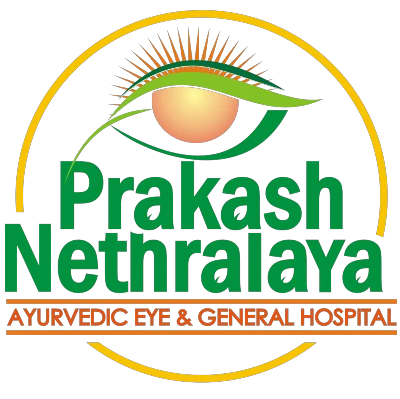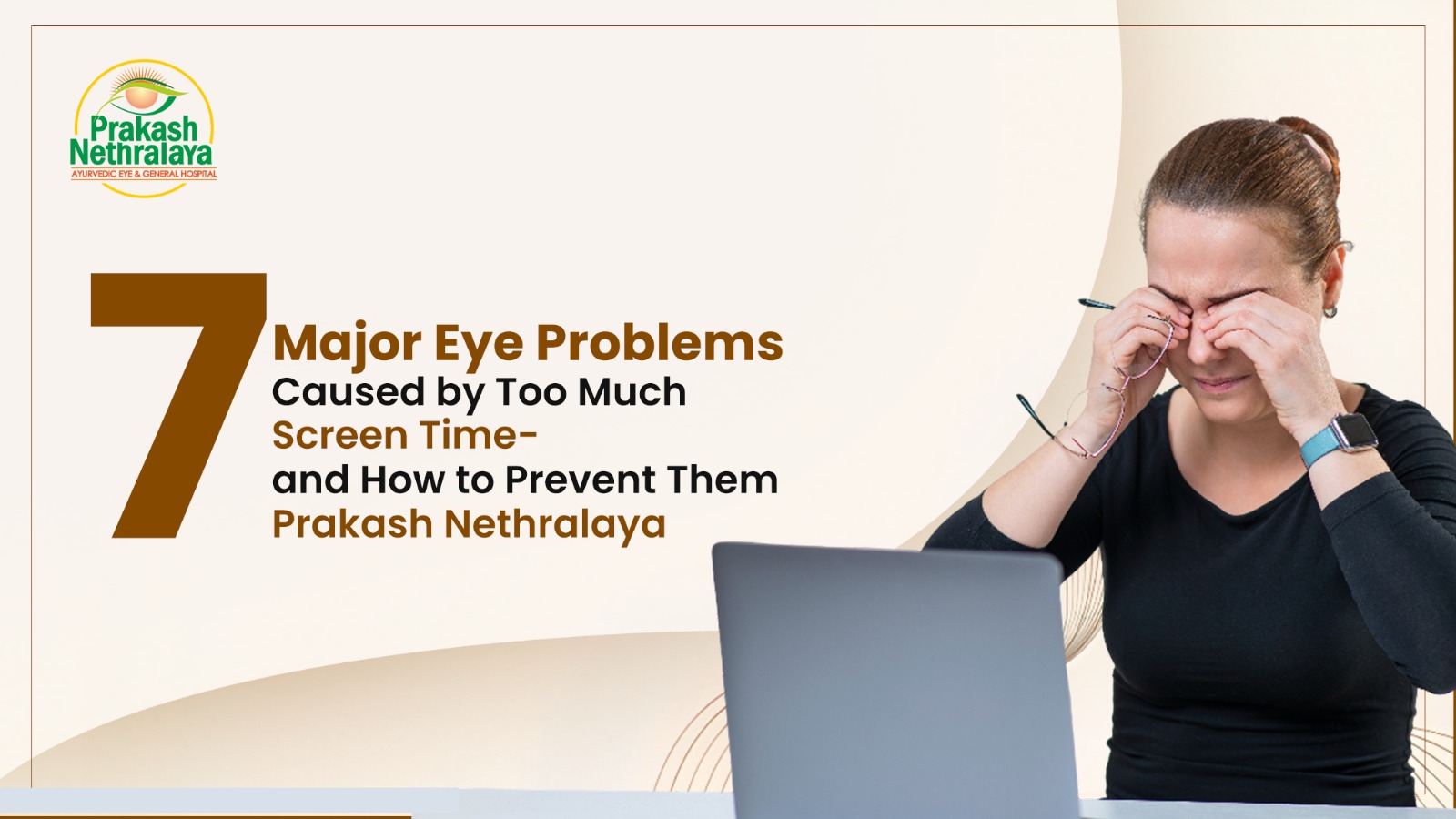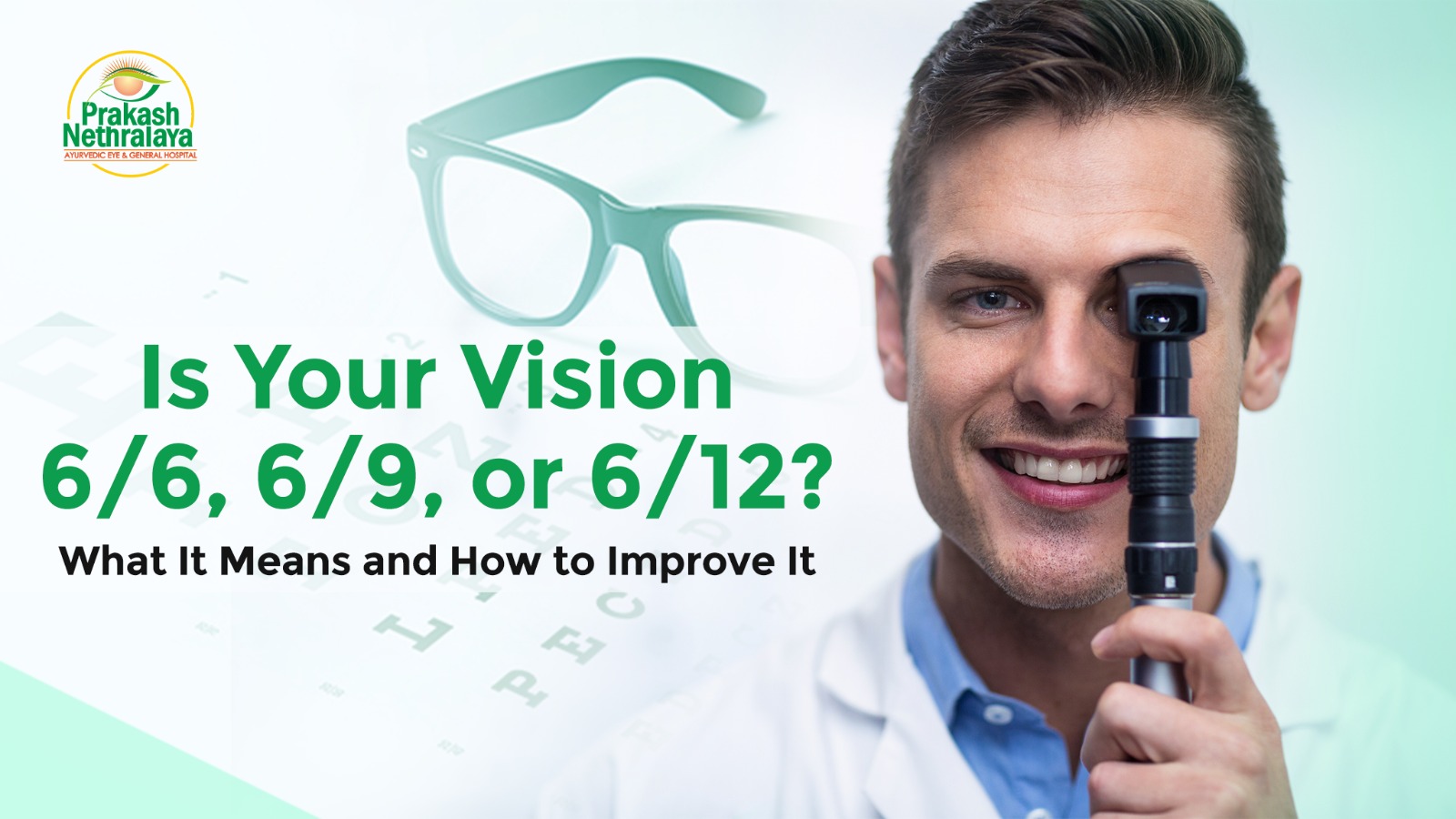In today’s fast-paced digital world, screen time has become nearly unavoidable. From early morning emails to late-night scrolling on social media, our eyes are constantly glued to smartphones, laptops, and tablets. While technology brings convenience, it also brings a hidden cost—our eye health. Increasing numbers of people, including young adults and children, are reporting issues like dry eyes, blurry vision, headaches, and even long-term damage to the eyes. These are not just passing symptoms; they may be signs of deeper, more serious eye conditions caused by prolonged exposure to screens.
Understanding the risks is the first step toward prevention. In this blog, we will explore 7 major eye problems caused by excessive screen time and how you can protect your eyes with simple lifestyle changes. We’ll also introduce Ayurvedic eye care, a gentle and effective alternative approach that has been helping people for centuries.
One notable expert in Ayurvedic ophthalmology is Dr. Dinesh Sharma, founder of Prakash Nethralaya and Panchakarma Kendra in India. He has helped thousands of patients recover from chronic eye diseases using natural therapies, even in cases where modern medicine offered no solution.
7 Major Eye Problems Caused by Too Much Screen Time
1. Computer Vision Syndrome (CVS)
This is the most common problem for people who work on screens all day. Computer Vision Syndrome happens when your eyes get tired from staring at a screen for a long time. You may feel eye strain, dry eyes, headaches, neck pain, or blurry vision.
Your eyes have to work harder to focus on screens, especially if the lighting or screen position isn’t right. Over time, this can make the eyes feel very tired.
2. Dry Eye Syndrome
When we look at screens, we forget to blink as often as we should. Blinking helps keep our eyes wet. Less blinking means the eyes become dry, itchy, or even watery (yes, watery eyes can also be a sign of dryness).
People who use air conditioners or wear contact lenses can feel this more. If not treated, dry eyes can cause serious discomfort and even damage the surface of the eye.
3. Myopia (Nearsightedness)
Myopia means you can see nearby things clearly, but faraway things look blurry. This condition is growing rapidly in kids and young adults who use screens for long hours and spend less time outdoors.
When you look at screens too closely for too long, your eyes adjust to near objects and slowly lose the ability to see far objects clearly.
4. Blue Light Damage
Screens give off blue light, which can go deep into the eyes and cause damage over time. Too much exposure to blue light—especially at night—can harm the retina (the back part of your eye) and may lead to vision problems in the future, including age-related issues like macular degeneration.
Blue light also affects your sleep. Using screens late at night can make it harder to fall asleep.
5. Eye Fatigue (Asthenopia)
Asthenopia is the medical term for eye tiredness. When your eyes are overused, especially while reading or watching screens without breaks, they can feel sore, heavy, or uncomfortable.
You may find it hard to focus or keep your eyes open. This usually happens when your eyes’ focusing muscles get overworked.
6. Light Sensitivity (Photophobia)
Some people start to feel pain or discomfort when looking at bright lights or screens. This is called photophobia, and it can happen if you’ve been using screens too much, especially with dry or strained eyes.
Bright sunlight, car headlights, or even your mobile screen can start to feel too harsh and uncomfortable.
7. Retinal Damage & Macular Degeneration
The most serious danger is long-term damage to the retina—the part of the eye that sends images to the brain. Too much screen use and blue light exposure might cause early damage to the macula, the central part of the retina.
This can lead to macular degeneration, a serious eye condition that causes permanent vision loss in older age.
How to Protect Your Eyes from Screen Time
You don’t have to quit using screens, but you can protect your eyes by following some simple habits:
- Use the 20-20-20 rule: Every 20 minutes, look at something 20 feet away for 20 seconds.
- Adjust screen settings: Reduce screen brightness, use night mode, and increase font size.
- Sit at the right distance: Keep the screen about 18–24 inches away and slightly below eye level.
- Blink often: Remind yourself to blink normally while using screens.
- Take regular breaks: Don’t sit for hours without resting your eyes.
- Avoid screens before bed: Try not to use phones or laptops at least 1 hour before sleeping.
- Use eye drops if needed: Artificial tears can help relieve dryness.
By following these easy steps, you can reduce eye strain and keep your vision healthy.
Ayurvedic Treatments for Eye Health
Ayurveda offers natural and gentle ways to take care of your eyes. Here are some common treatments:
- Triphala Eye Wash: Triphala is an herbal mix that can be soaked in water overnight and used to wash the eyes. It cleans and cools the eyes.
- Netra Tarpana: A special Ayurvedic therapy where warm ghee is poured into the eyes while you lie down. It relaxes and nourishes the eyes.
- Herbal Kajal (Anjana): Ayurvedic kajal is made from ghee and herbs to keep the eyes cool and clean.
- Nasyam: Putting a few drops of herbal oil in the nose helps remove toxins and improve eye health.
- Foot Massage (Padabhyanga): Massaging the feet with warm oil at night helps relax the eyes and the whole body.
Ayurveda focuses on balance. It not only treats the eyes but also improves sleep, reduces stress, and increases energy.
Prakash Nethralaya – Ayurvedic Hospital for Eye Care
If you are suffering from an eye disease and looking for natural healing, Prakash Nethralaya is a well-known Ayurvedic eye hospital in Jaipur. Founded by Dr. Dinesh Sharma, the hospital offers specialized Ayurvedic treatments for eye problems like macular degeneration, glaucoma, retinitis pigmentosa, diabetic retinopathy, and many others.
They use Ayurvedic therapies like Panchakarma, herbal medicines, and diet plans to help patients recover without surgery. Many people from India and around the world have found hope here after being told their condition couldn’t be treated.
Final Thoughts
Screens are a big part of our lives, but we must learn to use them wisely. Eye problems from too much screen time are becoming very common—even in young people. But with some smart habits and natural treatments, we can protect our eyes and avoid serious diseases.
Remember, your eyes are precious. Don’t wait for a problem to get worse consult ayurvedic doctor online and starting caring today.



